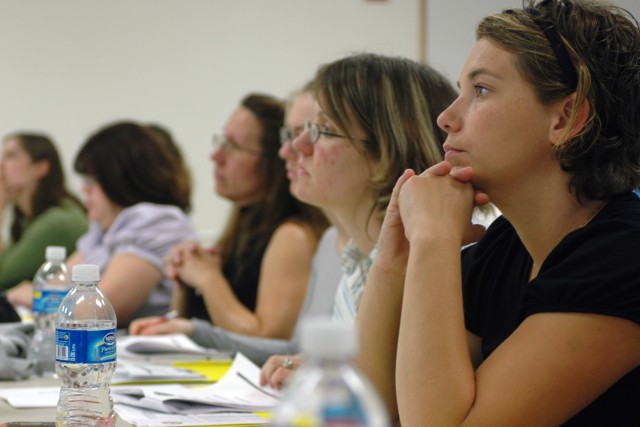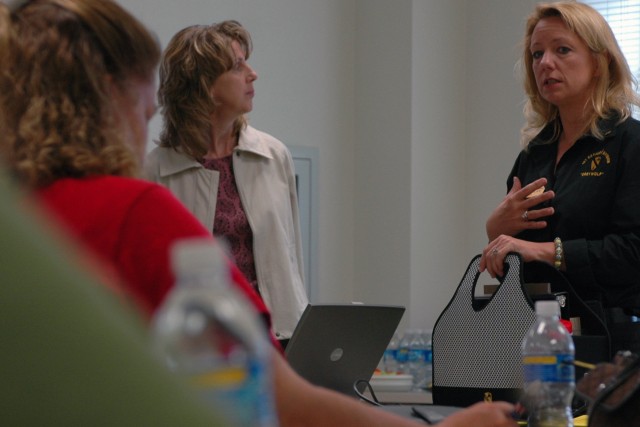FORT HOOD, Texas - The death of a Soldier is never easy for loved ones, but there is a group of trained volunteers who help the family after they are notified.
The 3rd Brigade Combat Team, 1st Cavalry Division, began training sessions for their go team and care team volunteers May 14 here in preparation for a possible deployment.
"The reason why we conducted this training for the brigade is because we have all new advisors at the battalion and brigade level and a lot of new company Family Readiness Group leaders," said Bennington, Vt. native Lori Carpenter, the brigade's Family Readiness Support Assistant.
Go teams and care teams are part of the brigade's family readiness group (FRG) with different jobs. Go teams are the first responders after a family has been notified of their loved one's death.
"Their initial job is to go in and assess the situation to see if they (the families) need further assistance," said Carpenter.
Care teams assist the family with the needs the family asks for.
"Our care teams, the majority of the time, are preparing food, and (giving) comfort and support during the memorial and during the funeral," Carpenter said.
"It's important to get them trained on the important tasks they might be doing, especially during the deployment," said Carpenter, though she also said the teams are always ready for family emergencies while the unit is not deployed.
"The purpose of the training is so that we feel more comfortable if we have the important task of going into a Soldier's family's home," said Carpenter. "We have subject matter experts who work in this field and can train our families."
Although the training is essential, "I can tell you from past experience when I was volunteering and went on go teams, you are never prepared enough for it," she said.
"It is something that if we can get the right people in to train them, work with them and meet with them on... it will make it a little easier to prepare them for what they are going to do," said Carpenter.
"In (Operation Iraqi Freedom II), we didn't have the go team aspect... it was just a bunch of volunteers that had an hour of training, driving out there themselves and talking to this family member," she said. "Now it is a little bit more structured."
The teams now have procedures to follow such as riding together in a military van so they don't crowd the house with numerous vehicles.
"From the past experiences we have improved a lot," said Carpenter.
The go team is more challenging than the care team in some aspects.
"We are honestly very picky on who is going to be a part of a go team, because not everybody can do it," said Carpenter. "You are going into a home directly after a family member has been notified of a death of their loved one."
Carpenter said she envisions a productive future for the new teams.
"From now on, either monthly or bi-monthly we will hold continuous care team training," she said. "It is improving and it is going to continue to improve."




Social Sharing